Top Foods to Eat when Pregnant First Trimester - Foods to Avoid

Quick Summary
Here are some of the best foods to eat when pregnant first trimester:
- Eat plenty of fruits and vegetables.
- Choose whole grains over refined grains.
- Include lean protein sources in your diet.
- Drink plenty of water.
By eating a healthy diet during the first trimester, you can help to ensure a healthy pregnancy and a healthy baby.
Table of Contents
Pregnancy can be a difficult road, and it is crucial to know the best foods to eat when pregnant first trimester. This is primarily because the body experiences numerous changes during this time which support the development and growth of the foetus. For many women, the first trimester can be especially challenging because of the constant morning sickness, nausea, and food aversions.
Maintaining a balanced diet with the required level of nutrition is essential to ensure a healthy pregnancy. Additionally, one must be aware of the foods to avoid when trying to get pregnant India. This contributes to the health of both mother and child while preventing the risks of complications. Keep reading to explore the top foods to eat when pregnant first trimester.
Importance of Nutrition in the First Trimester
Nutrition upholds huge importance, especially during the first trimester of pregnancy. During this period, the body needs to provide the developing foetus with essential nutrients that will aid in its healthy growth and development.
These essential nutrients primarily include protein, calcium, iron, folic acid, and vitamins such as A, C, and D and should be present in the list of foods to eat when pregnant first trimester.
Pregnancy’s first trimester is a crucial time because the baby’s organs and systems are developing in this phase. Proper nutrition during this time period can help reduce the risk of birth defects and complications like low birth weight and preterm delivery.
A nutritious diet can also help prevent common pregnancy complications like gestational diabetes and preeclampsia. Moreover, the best foods to eat when pregnant first trimester helps overcome symptoms like nausea, vomiting, fatigue, etc.

Top Foods To Eat When Pregnant First Trimester
It is important to keep in mind that during the first trimester of pregnancy, food acts as a source of tremendous support for one’s body alongside supporting the foetus.
Everything that a woman eats during the pregnancy period so does the baby. Thus one must ensure to include a wide range of healthy food items in the diet. Below are some of the essential foods to eat when pregnant first trimester.
- Coloured Vegetables and Fruits: Eating coloured vegetables during the first trimester of pregnancy is highly beneficial. Some of these include cauliflower, celery, squash, sweet potato, corn and more.
All these vegetables contain essential nutrients and vitamins. For increased benefits, one can keep taking vitamins alongside following the pregnant women food chart.
Some people think that fruits are too sugary to eat during pregnancy, but this is not true. Fruits contain large amounts of nutrition and help curb any kind of sugar cravings.
Bananas, apples, strawberries, mangoes, pears, citrus, pomegranates, grapes — all these are excellent choices to support the development of one’s baby in the womb.
However, make sure not to eat these fruits in excessive quantities as it can then lead to weight gain or increased blood sugar. - Whole Grains: Brown rice, cereals, oatmeal, and whole-wheat pasta — all come under the category of whole grains. Along with being extremely healthy, they contain high fibre, folic acid, iron and essential vitamins.
These help prevent certain common problems during pregnancy, like constipation or haemorrhoids. - Healthy Proteins: During pregnancy’s first trimester, it is important to consume a variety of healthy proteins to ensure that you’re getting all the essential amino acids needed for proper foetal development.
These mainly include lean meat, fish, eggs, legumes, peanut butter and dairy products like tofu etc. Make sure any meat or fish consumed during pregnancy is cooked thoroughly to avoid the risk of foodborne illnesses.
Also, try to limit the consumption of certain types of fish that are high in mercury, including shark, swordfish, and king mackerel. - Dairy Products: When considering foods to eat when pregnant first trimester, dairy products are the most crucial ones. They are an essential source of nutrients for pregnant women.
They are rich in calcium, which is crucial for the development of the baby’s bones and teeth. Additionally, dairy products also provide protein, vitamin D, and other nutrients that support the growth and development of the foetus.
Moreover, dairy products are also a good source of probiotics, which can improve gut health and reduce the risk of certain infections. Therefore, it is crucial for pregnant women to include dairy products in their diet to ensure a healthy pregnancy and baby. - Legumes: Legumes, such as lentils, beans, and soybeans, are a crucial source of nutrients for pregnant women. They are rich in protein, fibre, iron, folate, and other essential vitamins and minerals that are vital for foetal growth and development.
Consistent consumption of legumes during pregnancy can help lower the risk of pregnancy-related complications, preterm delivery, and birth defects.
Moreover, legumes are an excellent plant-based protein source that can be particularly beneficial for vegan and vegetarian women. These versatile foods can be easily incorporated into a variety of dishes, making them a tasty and convenient way for pregnant women to meet their nutritional needs.
Nutrient Requirements During The First Trimester
It is extremely crucial for women to understand the best fertility foods when trying to get pregnant. This can help in an easy conception and lead to a safe pregnancy. Additionally, pregnant women must also be mindful of the exact nutrient requirements of their body during the first trimester.
Some key nutrient requirements during the first trimester include:
- Folic acid: Folic acid is critical for the development of the neural tube, which forms the brain and spinal cord. Women are typically advised to take 400-800 micrograms of folic acid daily before and during early pregnancy.
- Iron: Iron is important for the production of haemoglobin, which carries oxygen to the baby. Women need extra iron during pregnancy to support the increased blood volume. Iron-rich foods such as lean meat, beans, spinach, and fortified cereals can help meet the daily requirement.
- Calcium: Calcium is essential for the development of strong bones and teeth in the baby. Pregnant women need 1,000 milligrams of calcium per day. Dairy products, leafy greens, and fortified foods are good sources of calcium.
- Protein: Protein is important for the growth and development of the baby's cells and tissues. Women should aim for at least 70 grams of protein per day from sources such as lean meat, poultry, fish, beans, and nuts.
- Vitamins and minerals: In addition to folic acid, iron, calcium, and protein, pregnant women also need adequate amounts of vitamins and minerals such as vitamin D, vitamin B12, and zinc.A balanced diet including a variety of fruits, vegetables, whole grains, and lean protein sources can help meet these requirements.
| Nutrients | Recommended Daily Dose |
| Folic Acid | 400-800 micrograms |
| Iron | 1,000 milligrams |
| Calcium | 1,000 milligrams |
| Protein | 70 grams |
| Vitamins and Minerals | Vitamins: 800 micrograms - 1.5 milligramsMinerals: 50 micrograms - 1 milligrams |
Foods To Avoid During The First Trimester
During the first trimester of pregnancy, it's important to avoid certain foods that may increase the risk of foodborne illnesses or harm the developing foetus. Some foods to avoid during the first trimester of pregnancy include:
- Raw or undercooked meat and poultry
- Caffeine in excessive amounts
- Alcohol
- Raw or undercooked fish and shellfish
- Unpasteurized dairy products
- Deli meats and processed meats
- Raw or undercooked eggs
- Certain types of fish with high levels of mercury
- Artificial sweeteners
Healthy Eating Tips To Keep In Mind During The First Trimester
During the first trimester of pregnancy, it is essential to adopt a healthy eating plan to ensure both the mother’s and the baby’s optimal health. Here are some healthy eating tips for pregnant women to keep in mind during the first trimester:
- Eat a balanced diet: It is crucial to consume a variety of foods from all food groups, including fruits, vegetables, whole grains, lean proteins, and dairy products.
- Take prenatal vitamins: Prenatal vitamins contain essential nutrients that support the baby’s growth and development, such as folic acid, iron, and calcium.
- Stay hydrated: Drinking plenty of water can help prevent constipation and dehydration.
- Eat small, frequent meals: Eating several small meals throughout the day can help regulate blood sugar levels and prevent nausea.
- Choose healthy snacks: Snacking on fruits, vegetables, and nuts can provide important nutrients and keep you feeling full between meals.
- Limit caffeine intake: Pregnant women should limit their caffeine intake to 200 mg per day or less, which is equivalent to one 12-ounce cup of coffee.
Pregnancy is a crucial phase in a woman’s life, and keeping up with the right nutrition is essential both for the mother and baby. It is recommended to consult with a healthcare provider to develop an individualised plan that meets the specific nutritional needs during pregnancy.
Wrapping Up
In conclusion, the first trimester of pregnancy is a crucial time for foetal development, and it is important to consume a balanced and nutrient-rich diet to support this process. The best foods to eat when pregnant first trimester include lean protein sources such as poultry, fish, and legumes, as well as nutrient-dense foods such as leafy greens, citrus fruits, and whole grains.
Turn to HexaHealth and get expert consultation from our seasoned professionals, that can help make your entire pregnancy easy. With the right diet chart to the integral exercises for the effective development of the baby, you can explore all the essential aspects with us. Get in touch with us today!
Frequently Asked Questions
What foods to eat when pregnant first trimester?
Knowing the foods to eat when pregnant first trimester is extremely crucial. Eat nutrient-dense foods like leafy greens, whole grains, lean proteins, and citrus fruits. This is crucial for a healthy pregnancy and also helps keep up the effective development of the baby.
Dairy products are also integral for fulfilling the need for calcium in the body.
What foods to avoid when trying to get pregnant India?
What are the best fertility foods when trying to get pregnant?
What is the recommended food chart for a pregnant lady?
Are there more food cravings when pregnant with a boy?
What are the benefits of iron-rich foods for pregnant women?
What are the foods to avoid when trying to get pregnant?
What are the recommended protein foods for pregnant women?
What foods to avoid to get pregnant?
What foods to eat to get pregnant with a boy?
How does the Anganwadi food supply for pregnant women help?
What foods to eat when trying to get pregnant fast?
What foods to get pregnant with twins?
What are protein foods for pregnant vegetarian females?
Is it safe to eat spicy food while pregnant?
For women at 27 weeks pregnant, what food to eat?
For women at 6 or 5 weeks pregnant what foods to avoid?
What are the best foods to eat when pregnant first trimester?
Which fruit is best for the first trimester?
What are the best foods to eat while pregnant with morning sickness?
What are fibre-rich foods while pregnant?
What are the best food supplements for pregnant mothers?
What are the foods to eat to lower blood pressure while pregnant?
What are recommended foods to help gain weight while pregnant?
What is considered good food for 4-month pregnant women?
What are pregnancy superfoods?
List of Foods to Include in 1st Month Pregnancy Diet Chart.
A 1st month-pregnancy diet chart for women can include the following:
- Fruits like bananas, apples, and oranges
- Green leafy vegetables
- Whole grains like oats
- Dairy products like milk, yoghourt, and cheese
- Protein-rich foods like eggs, lean meat, and legumes
- Healthy fats like nuts, seeds, and avocado
- Plenty of water to stay hydrated.
How many extra calories do you need during the first trimester?
What nutrients do you need during the first trimester?
What are the healthy eating tips for the first trimester?
What is the best homemade food for pregnant dogs?
References
All the articles on HexaHealth are supported by verified medically-recognized sources such as; peer-reviewed academic research papers, research institutions, and medical journals. Our medical reviewers also check references of the articles to prioritize accuracy and relevance. Refer to our detailed editorial policy for more information.
Last Updated on: 5 August 2023
Reviewer

Dr. Rajeshwari Panda
MSc Clinical Nutrition and Dietetics, Certified National Diabetic Educator
6 Years Experience
Dr Rajeshwari Panda is a well-known Dietitian currently associated with SRV Hospital, Chembur. She has 6 years of experience in nutrition and dietetics and worked as an expert dietitian in different cities in India. She has worked i...View More
Author
HexaHealth Care Team
HexaHealth Care Team brings you medical content covering many important conditions, procedures falling under different medical specialities. The content published is thoroughly reviewed by our panel of qualified doctors for its accuracy and relevance.
Expert Doctors (10)
NABH Accredited Hospitals (5)
Latest Health Articles






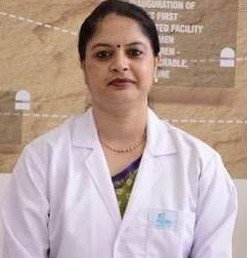
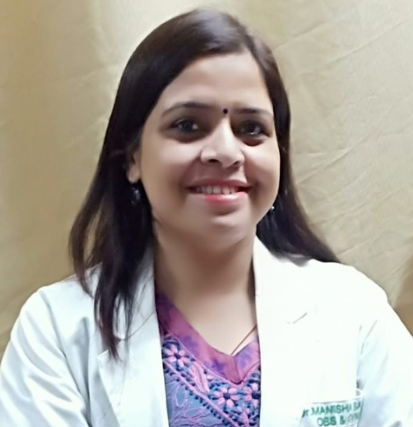
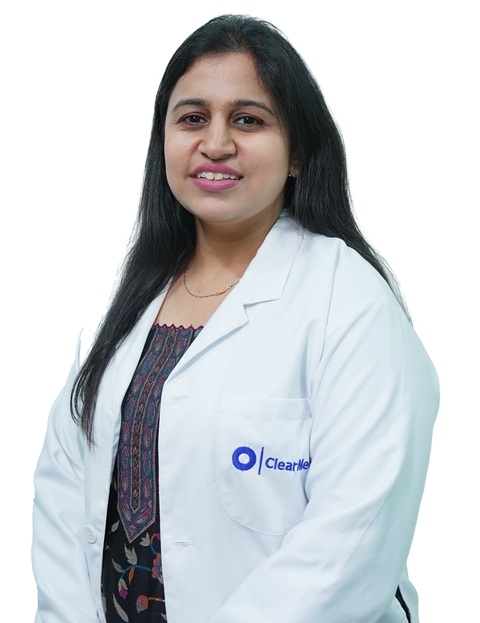

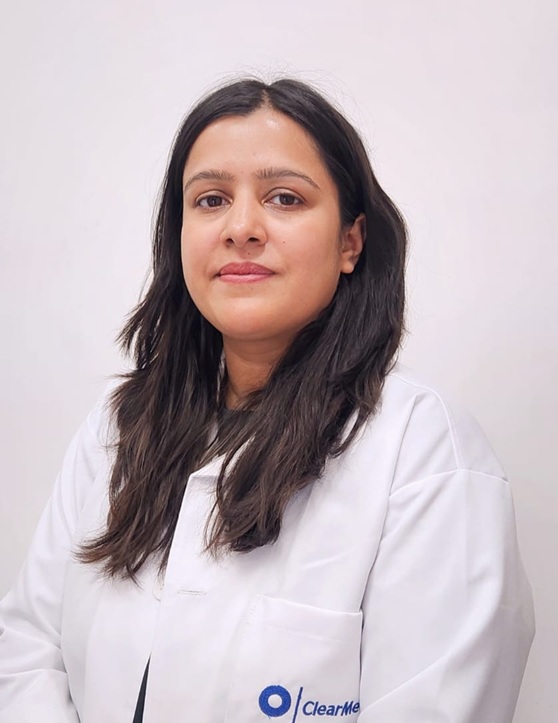














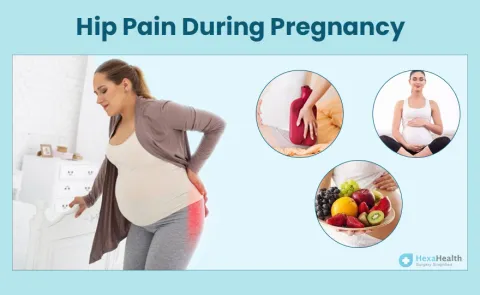
 Open In App
Open In App